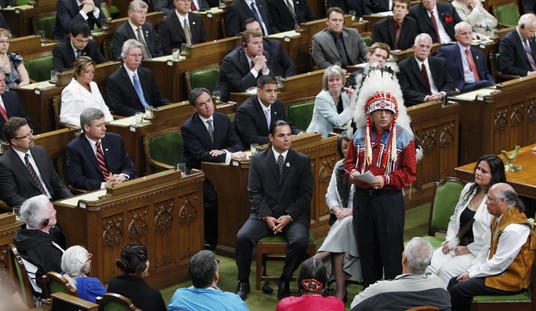Hot Air highlights this passage from a Conor Friedersdorf item at the Daily Beast:
“Despite all the bluster, bombast, and hyperbole, Mr. Breitbart is capable of insightful media criticism, and his Big Government site can make a real contributions to American journalism, especially if it continues to underwrite original reporting, and somewhat improves the quality of its commentary. The right should instead regard the Gray Lady as an imperfect institution whose core journalistic values are nevertheless worth emulating, along with the practices of other worthy players in the liberal press.
Is it too much to ask for right-wing media outlets to employ an ombudsman, a talented pool of reporters, and ideologically heterodox columnists like the Times; to check facts as carefully as the New Yorker; to challenge its own orthodoxies as regularly as The New Republic; and to assemble an staff alumni list as impressive an influential as The Washington Monthly?…
The Times, whatever its faults, is a better general-interest newspaper than anything conservatives ever created, which is reason enough to approach it with humility and learn from its strengths.”
Post-Duranty and pre-9/11, it certainly was. Too bad Pinch and the now mercifully retired Howell Raines killed those aspects of it. Damning quote by Sulzberger, as originally reported by the New Yorker, and paraphrased by Stanley Kurtz:
Pinch was a political activist in the Sixties, and was twice arrested in anti-Vietnam protests. One day, the elder Sulzberger asked his son what Pinch calls, “the dumbest question I’ve ever heard in my life.” If an American soldier runs into a North Vietnamese soldier, which would you like to see get shot? Young Arthur answered, “I would want to see the American get shot. It’s the other guy’s country.” Some Sixties activists have since thought better of their early enthusiasms. Pinch hasn’t.
Damning quote by Raines:
While Sulzberger felt that diversity made good business sense, Howell Raines, whom Sulzberger chose to replace Executive Editor Joseph Lelyveld when he stepped down just before September 11, 2001, took it one step further, saying that same year that the Times’ diversity campaign, “has made our staff better and, more importantly, more diverse“. In other words, for Raines, diversity was more important than quality for the world’s most influential newspaper, in the world’s most important and competitive city.
To be fair though, I’m glad to see Friedersdorf tacitly seconding the comments by former Times ombudsman Daniel Okrent on where the Gray Lady falls on the ideological spectrum.










Join the conversation as a VIP Member